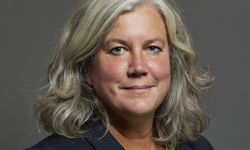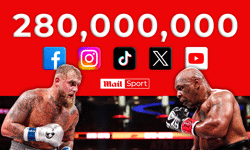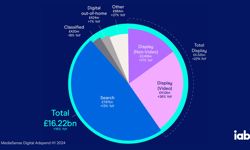
Marketing specialists are by nature professional optimists. David Pemsel, chief executive of Guardian Media Group (GMG) and former marketing director of ITV is clearly a member of that fraternity even though he works in the difficult, or as marketeers would put it, challenging, domain of the news business.
“I could not be happier with our progress. I cannot overstate that. Every number we have said we would deliver in year one (of a three-year plan), we have exceeded. I think our journalism is doing so many important things, in the UK traffic continues to grow, appreciation of what we do continues to grow,” exudes the upbeat Pemsel who stepped up from deputy GMG chief executive two years ago in succession to Andrew Miller.
The numbers game
And what precisely are the numbers that Pemsel is so happy about?
Annual revenues for the year to April are, at £214 million, up 2 per cent, costs of £252 million are down 6 per cent and underlying losses at £37.6 million are a third lower than last time.
Editorially, the Guardian website has reached 140 million unique monthly users, with 9.7 million regular users globally in March, while print sales, helped by the run-up to the general election, were close to stable at 153,163 in May.
Given the importance Pemsel places on the drive to turn readers into members – paying members where possible – the group now has 230,000 paying members, 185,000 subscribers across digital and print and 190,000 have also made one-off contributions.
In most other industries, such numbers would be hardly anything to get excited about but in the news business, and certainly compared with the performance in 2015/16, they do indeed represent real progress.
“People have been commenting on the very steep decline in print advertising. We have navigated through some very disruptive trends in advertising and at the same time have grown our revenue,” says Pemsel.
The GMG chief executive insists, “we remain absolutely on track” for breakeven between revenues and costs by 2019, the last year of the three-year plan which provides the structure within which a myriad of challenges and developments will be tackled. They range from the move from Berliner to tabloid format, experiments with the Guardian’s own version of crowd-funded journalism to the never-ending problematical relationships with the social media giants.
Underlying it all, and another cause of optimism is that GMG’s financial reserves have been topped up to £1.1 billion thanks to the phased sale of the group’s stake in Ascential, the business magazine and events group.
Mixed relations with social media
Pemsel declines to comment on the EU’s £2.1 billion fine on Google for alleged misuse of market dominance in online shopping, but is more than happy to discuss the difficulties publishers face in receiving what they regard as a fair return from social media for their content.
The Guardian pulled out of Facebook’s Instant Articles scheme just as it came out of Apple News, mainly because the social media giants got the content but there was little sign of reciprocal returns.
“We really do encourage Facebook to really think about how we can create an ecosystem where they get our content and quality content providers get a return and there can be a mutual relationship,” Pemsel argues.
With Google, the problem has been more about Guardian membership acquisition ads appearing next to “some pretty toxic content,” he notes.
The Guardian executive emphasises there have been positive collaborations on projects such as Google Daydreams, its virtual reality initiative, and the Digital News Initiative under which Google promises to allocate more than £20 million to fund news projects across Europe.
“We want them to move much, much faster on DNI,” says Pemsel while emphasising Guardian journalism will always hold the big social media players to account, whatever the relationship, if they are seen to pay insufficient tax, are anti-competitive or indeed fail to understand their long-term impact on news organisations.
Despite the obvious difficulties in such relationships, Pemsel will never exclude potential co-operation.
“I think it’s really important in a fast-moving and dynamic digital world, you don’t make these black and white decisions not to collaborate or we don’t see them as partners,” he explains.
If the Guardian is now moving to a tabloid format to be printed under contract by Trinity Mirror, does that mean owning presses and using them for an unusual format was a mistake?
For Pemsel, the Berliner was a beautiful award-winning format that served readers well for twelve years and in current times, twelve years feels like a lifetime.
“None of the decisions we are making right now are any judgment on our past. We are now living in the moment of our three-year plan and all of our decisions are made in the context of our breakeven aspiration rather than a judgment of what was said before,” Pemsel insists.
The move to tabloid will save “several millions” a year that will soon drop to the bottom line and will enable the GMG’s design teams to produce a new “thing of beauty” whose design will be reflected across all the group’s editorial platforms.
Membership models
For Pemsel, the fundamental element of the new strategy is “to wean ourselves off the big numbers around the globe” and redefine what a reader is and how they should be involved and contribute – basically spending more time reading Guardian content.
“Once we get to know this individual more, they are more likely to be converted into some kind of relationship with us that ultimately gives us a more balanced revenue model than just advertising,” Pemsel explains.
The concept of the typical Guardian reader, and what they should be offered, revolves around the word “progressive” and what that means in terms of attitudes and age profile. Unsurprisingly, these progressive readers are more likely to be younger, better educated and above median income.
There is also a determination on the editorial side by editor Kath Viner to continue to provide long reads whatever the format and avoid the digital temptation to concentrate on “alerts and bites”.
The Guardian chief executive does not try to duck the tough market for print advertising, compounded by the apparently inevitable rise of programmatic digital advertising, increasing the pressure.
Pemsel does however allow himself another little burst of optimism by insisting that amidst the dislocation of programmatic, there will be more emphasis on context in future – something that would play to the strengths of the Guardian.
“Clients are focussing more and more on the long term in terms of brand value and, while actually some of these numbers can be challenging at the moment, I actually believe that environment and context will be valued in the programmatic space,” Pemsel predicts.
Funding investigative journalism
At the same time as cutting costs, getting to know readers and trying to turn them into supporters, the publisher has also been experimenting with advertising initiatives and ways of funding longer-term investigative journalism.
Pemsel, whose early career was in the advertising industry, says Guardian Labs has produced “fantastic case studies” from companies such as SEAT to Barclays and Vodafone using digital to drive contact partnerships with clients – measured, for instance, by the number of test drives generated for SEAT.
Rather more controversially, the Guardian has launched a fundraising campaign tied to a particular investigative series – This Land Is Your Land - the attempted sell-off of public lands in the US. The Guardian is asking for $50,000 in donations to help pay for the complex investigation, rather as the American broadcaster PBS tops up its funds through donations.
Pemsel acknowledges the sensitivity and the need to avoid overt campaigning but believes the initiative could spread from the US, where such giving is well understood, to Australia and the UK in the cause of turning readers into more active supporters.
Turning readers into enthusiastic supporters has taken priority over plans by the previous regime to take over the enormous Midlands Goods Shed in King’s Cross as the heart of a plan to launch an extensive roster of live events. Although live events continue, they will now be in other people’s space.
“I am not going to in any way apologise for course-corrections, changing of minds, initiatives that start out as a good idea and then one changes. Though it’s a three-year framework, we are constantly evaluating, judging our performance every quarter,” Pemsel argues.
Is he still, as he once said, in the process of transitioning out of print in the long-term?
The stock answer remains the same. The Guardian will continue in print as long as readers value it.
Paywalls or metered paywalls?
Another stock answer.
The plan is to break even within three years and, therefore, everything remains on the table but at the moment, there are no plans for either paywalls or metered paywalls.
“If for any reason I thought our strategy and business plan wasn’t going to work then obviously there is an environment in this business now to pause, stop and reflect on other strategic options,” Pemsel concedes.
The GMG chief executive was recently approached to throw his hat in the ring for the top job at Channel 4.
“I didn’t apply. I wasn’t interested. I’m going to see the three-year plan out,” was the answer.
ITV is currently looking for a new chief executive. Same answer says Pemsel.
Then it’s time for some more optimism.
“If you came into the business now editorially, I don’t think we have ever been busier, strategically we are building relationships with our readers and all the metrics we have set ourselves we are exceeding, so we couldn’t be happier,” concludes the optimistic David Pemsel, chief executive of the Guardian Media Group.










